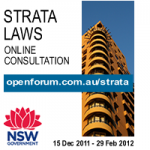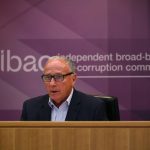A debate needs more than sloganeering

The first of what could be three campaign debates between the Prime Minister Scott Morrison and Labor Leader Bill Shorten was never going to have a big impact on the May 18 federal election.
For many of the unprecedented number of jaded and disinterested voters who have opted for pre-poll voting, the campaign is as good as over.
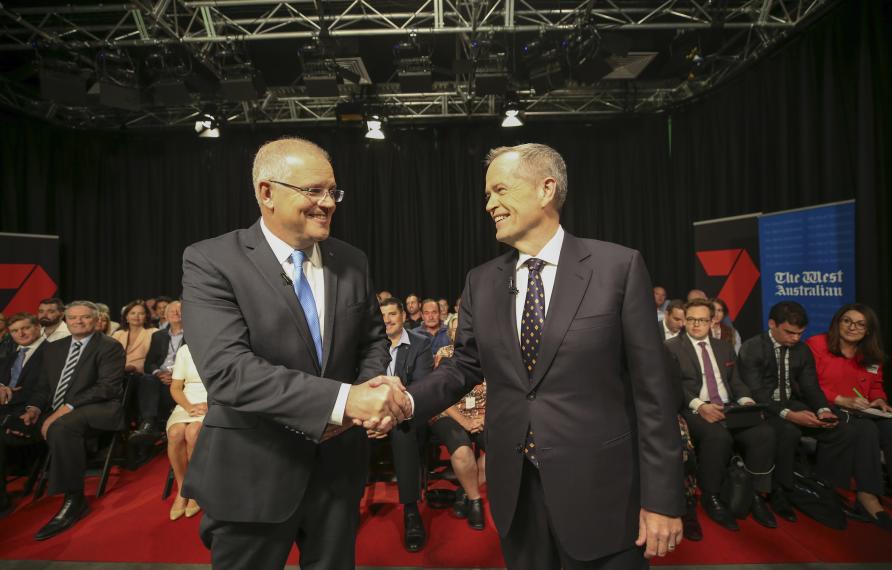
Scott Morrison and Bill Shorten shake hands before the debate.
And this week’s contest – hosted on Seven’s secondary TV channel – was a world away from the so-called ‘Great Debates’ of yesteryear.
This was a time when the vast majority of Australians still trusted in and engaged with our political system: a time when the mainstream eagerly tuned in to witness the slightest slip or verbal triumph of a Bob Hawke or John Howard that might well decide who ruled the nation.
In this age of mistrust and democratic disconnection, the same mainstream doesn’t hold out much hope for what passes today for political leadership.
But last night’s debate might have exceeded, albeit marginally, our low expectations.
To be sure, as the debate’s moderators cycled through questions on national security, climate change and wages, both leaders showed their usual adeptness for turning complex issues of state into singular slogans.
‘Strength’ and ‘Fairness’ were the respective themes that Mr Morrison and Mr Shorten leant on to frame their responses, as they perched on bar stools and smirked awkwardly like estranged mates.
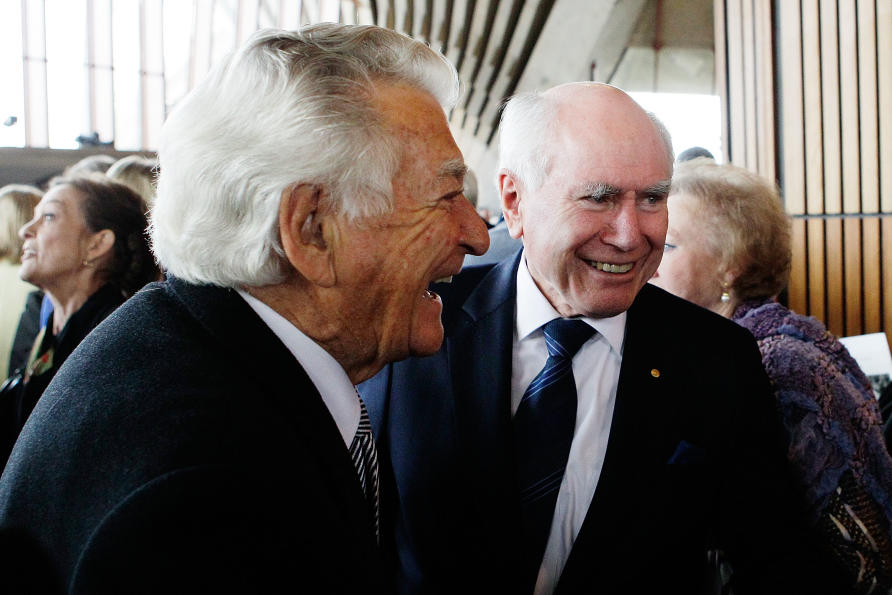
People tend to be less engaged with politics compared with the time when the likes of Bob Hawke and John Howard were leading their parties.
According to the Prime Minister, a strong economy was the only path to a secure future and the Coalition’s hands were the only safe pair to deliver it. Labor, on the other hand, were obsessive taxers and economic wreckers.
For the PM-in-waiting, a strong economy counted for little when ordinary Australians struggled with stagnant wages while the top end of town prospered, thanks to the largesse of a regressive government.
Even the hot-button issue of ‘who should voters trust?’ – one that clearly transcends party divides – was instantly translated into partisan slogan fodder by both leaders.
However, there were brief moments when, low and behold, the leaders stopped sloganising to camera and appeared to exchange unscripted views (this is what on a good day can be defined as ‘debate’).
Each landed some blows and injected the contest, fleetingly, with some energy and authenticity.
Labor was to blame, according to an indignant Mr Morrison, for the “worst policy failure since Federation”, and the drowning deaths of more than a thousand asylum seekers, with its porous pre-2013 border security regime.
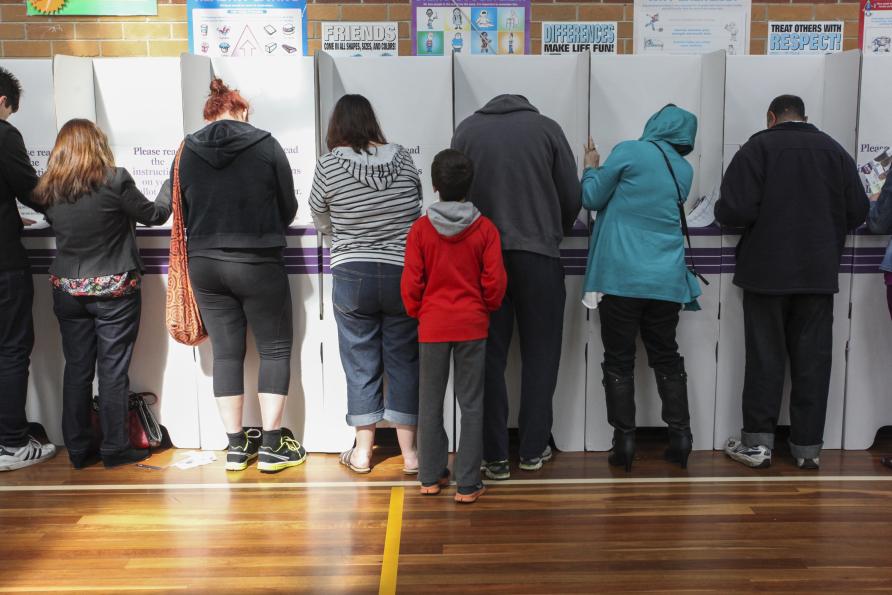
Many Australians are expected to postal vote at the upcoming election in a sign that they are perhaps disengaged from the election campaign.
Mr Shorten in turn riffed about the Prime Minister’s preference deal with mining tycoon-turned-political populist Clive Palmer, using it to push Labor’s plum message that the Coalition can’t help but broker shady deals with big business.
In their concluding pitches Mr Morrison appealed for continuity and Mr Shorten for change. Mr Morrison urged voters to stick with what was working, an economy delivering jobs and growth and record funding for services, claiming Labor couldn’t be trusted to keep the show on the road.
Mr Shorten argued there was a national mood for change but that a divided Coalition was stuck in the past. Only Labor, he claimed, could deliver on climate change action, more and better health services, and a fair-go on wages.
The Labor leader won three handclaps during the debate from the carefully curated studio audience, which duly conferred him the winner.
For those who continued to watch the host channel, 7Two (which garners around five per cent of the nation’s viewing audience), it was then on to the Vicar of Dibley.
Amidst the flashes of what seemed to be authentic banter, however, one moment during the debate spoke volumes about why today’s politics now means so little to so many.
For the next-to-last question, both leaders were asked to nominate what they respected about the other.
Now expressing respect for someone isn’t the same as saying you admire or even like them. Rather, it’s a simple gesture of acknowledgement that everyone, in their own way, shoulders common responsibilities that come with being human.
However, in the hyper-partisan world of 21st century campaigning, ceding a skerrick of humanity to your opponent amounts to taking political hemlock. So, both leaders were clearly challenged by the question for which no slogans or soundbites exist as answers.
According to the PM, he respected his opponent because he had chosen to serve the public. The fact this designation can be also applied to your local garbage collector was probably the point Mr Morrison was surreptitiously wanting to make.
Mr Shorten made a slightly better fist of it, praising Mr Morrison for his commitment to mental health.
But most likely, he, like Mr Morrison, was giving his opponent patronising praise because Labor knows it is way ahead in the polls on every health issue.
And that’s the problem when voters clearly want our politicians to be human so they have a reason to listen and re-engage. Rather than building bridges, as the debate’s moderators suggested with their left-of-field question, today’s political leaders compulsively find reasons to tear them down.
And that’s one of the reasons why the increasingly rickety bridge of Australian politics finds it more and more difficult to cross the mainstream.
This article was published by Pursuit. Another version of this article first appeared on Election Watch.
Mark Triffitt lectures in public policy and politics at the University of Melbourne. He was formerly Director of Strategic Communications with the Business Council of Australia and Executive General Manager of Corporate Affairs at Wesfarmers.







